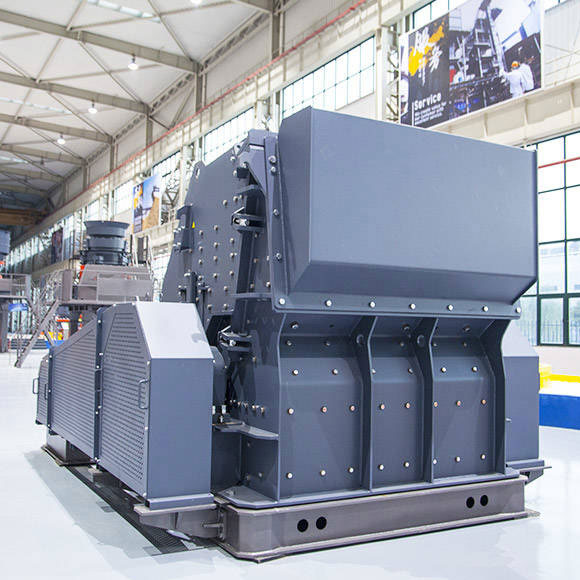Hard rock crushing is a critical process in various industries, including mining, construction, and quarrying. To efficiently break down tough materials like granite, basalt, and quartzite, specialized equipment is essential. One such crucial tool in the rock crushing arsenal is the impact crusher. This article explores the role of impact crushers in hard rock crushing plants, their design features, operational advantages, and the overall impact on the production process.

Design Features:
- Rotor Design:
- The heart of the impact crusher is its rotor. In hard rock applications, a robust rotor design is essential to withstand the high-stress forces generated during the crushing process.
- Heavy-duty rotors with high inertia are preferred for efficient crushing, ensuring that the energy generated is effectively transferred to the hard rock material.
- Impact Bars and Blow Bars:
- Impact crushers use impact bars or blow bars to strike the material and break it. These components are made of high-strength materials like manganese or chrome steel to withstand the abrasive nature of hard rocks.
- The design of these bars is critical for achieving the desired particle size reduction and ensuring a longer lifespan for the wear parts.
- Adjustable Impact Aprons:
- To control the size of the crushed material, impact crushers often feature adjustable impact aprons. Operators can modify the clearance between the aprons and the rotor to achieve the desired product size.
Operational Advantages:
- Versatility:
- Impact crushers excel in handling a wide range of hard rock materials, from limestone to granite. Their versatility makes them suitable for various applications, including primary, secondary, and tertiary crushing.
- High Production Capacity:
- The efficient design of impact crushers, combined with their ability to handle hard rocks, results in high production capacities. This is crucial for industries where large quantities of crushed material are required to meet demand.
- Cubical Particle Shape:
- Impact crushers are known for producing well-shaped, cubical particles. This is advantageous for industries like concrete production, where particle shape influences the quality of the final product.
- Low Operational Costs:
- Compared to other crushing equipment, impact crushers often have lower operational costs. Their simplicity in design and fewer moving parts contribute to reduced maintenance requirements and downtime.
Overall Impact on the Production Process:
- Increased Efficiency:
- Incorporating impact crushers in a hard rock crushing plant enhances overall efficiency. Their ability to deliver high throughput and consistent particle size reduction contributes to a streamlined production process.
- Reduced Wear and Tear:
- The robust design of impact crushers, combined with advanced wear-resistant materials, results in reduced wear and tear on equipment. This leads to longer operational life and lower replacement costs.
- Environmental Impact:
- Efficient hard rock crushing with impact crushers can contribute to environmental sustainability. By producing high-quality aggregates, the need for additional processing steps may be reduced, lowering energy consumption and emissions.
Impact crushers play a pivotal role in hard rock crushing plants. Their robust design, versatility, and operational advantages make them indispensable in various industries. The efficient reduction of hard rock materials, combined with the potential for high production capacities and low operational costs, positions impact crushers as key contributors to a successful and sustainable rock crushing process.
